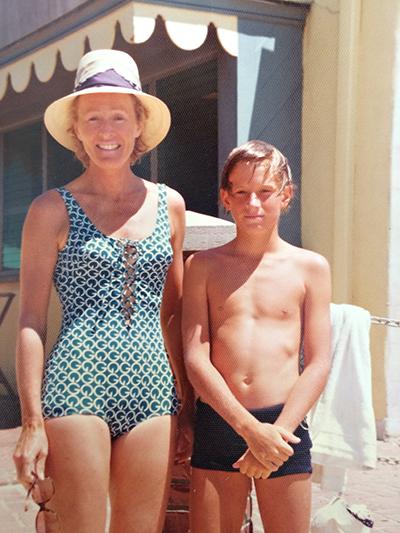Social Security Works
Social Security Works
Friends, I thank you for starting another piece from me on this topic; please don’t move on yet. Yes, my efforts to defend Social Security from government and media lies have become familiar, though I fear fruitless, for more than a decade. Still, revelations in recent years of ever more skullduggery by both parties make my efforts even more relevant. Remember Bob Hope’s quip: “No one party can fool all the people all the time. That’s why we have two parties.”
When it comes to bashing Social Security, the media cooperates with both. Two recent New York Times articles conspired to erode public confidence in what I call America’s collective 401(k). So, I’m once again into the fray.
The two articles appeared on the same day last December. A columnist for The Times wrote a front-page piece titled “Aging Society Changes Story on Poverty in Old Age,” and a news report from the presidential races was titled “Clinton Confidently Embracing Her Husband’s Economic Record.” The columnist, Eduardo Porter, wrote of demographic trends “expected to continue for at least the next 50 years” (expected by whom?). And he dismissed any proposed increase in the Social Security tax rate as “politically dead on arrival in Washington” (as though an increase would affect overall government spending). I’ll deal with those matters below.
First, if you wonder what the Clinton story has to do with Social Security, the answer is that Democrats still include “a balanced budget” among President Bill Clinton’s achievements. And that false claim depends on convincing the American people that the federal government doesn’t owe any money to Social Security.
Here’s the background. In 1997, the Clinton administration changed the way the Bureau of the Public Debt had been reporting the national debt for more than 200 years. Ever since Alexander Hamilton was secretary of the Treasury, the bureau has presented “Total Public Debt Outstanding” as a single number. Because Hamilton was as obsessive in crunching numbers as in dissecting arguments, the number has always been calculated “to the penny.” The first was published on Jan. 1, 1790, showing the nation’s debt in 10 digits: $71,060,508.50. Today, it takes 16 digits to show our debt of nearly $19 trillion. (You can view both on the bureau’s website — treasurydirect.gov/NP/debt/current.)
On Sept. 30, 1997, two additional numbers appeared for the first time on the website. (The federal government’s fiscal year ends on Sept. 30.) The numbers were shown alongside Total Public Debt Outstanding as subcategories of debt: “Debt Held by the Public,” representing Treasury bonds sold to individuals, corporations, and governments worldwide when the Treasury borrowed money, and something called “Intragovernmental Holdings,” defined on the bureau’s website as “Government Account Series securities held by Government trust funds, revolving funds, and special funds.” (I wonder who invented the word “intragovernmental.” My computer insists it’s a misspelling.)
The sum of those subcategories of debt — each calculated to the penny — equals Total Public Debt Outstanding.
So what’s the scam? The Clinton administration claimed that Intragovernmental Holdings is merely money that one part of the government “owes” to another part. It’s as though, the argument goes, you owe money to yourself. (I’ve personally never met anyone who can explain what it means to owe myself money.)
Ignoring Intragovernmental Holdings, the Clinton administration used Debt Held by the Public to represent the federal government’s total debt. And (surprise!) in the four fiscal years between Sept. 30, 1997, and Sept. 30, 2001, Debt Held by the Public actually declined each year. That was the Democrats’ entire rationale for claiming a balanced budget. It still is.
Never mind that in each of those four years Intragovernmental Holdings increased, largely because the government was borrowing money from the Social Security Trust Fund — a total of some $550 billion over the four years. (More on this below.)
And never mind that Total Public Debt Outstanding — the one number that every administration before 1997, including Clinton’s own, had used to calculate the government’s annual budget surplus or deficit — also increased each year. Over the four years, the federal government’s total debt increased from $5.41 trillion to $5.81 trillion.
All of this data has been available on the bureau’s website. With the media turning a blind eye, however, Democrats believed they could get away with the scam. Apparently they still do.
Of course what Democrats began Republicans were only too happy to continue. In fact, years before George W. Bush became president, Republicans were telling the American public that Social Security was going broke. They still are.
The twin lies on which Republicans make their case were repeated in Eduardo Porter’s New York Times column. First, they claim to have identified, in Mr. Porter’s words, “inexorable” economic and demographic trends that will last “at least the next 50 years” and lead to Social Security’s inevitable demise. Really? Is Mr. Porter suggesting that he, or anyone, knows what the U.S. economy and demographics are going to look like in 2066 and beyond? Social Security’s actuaries don’t claim such prescience. Their fundamental test of “financial adequacy” — the relation between assets in the Trust Fund and promised payouts — is projected for just 10 years. Beyond that, projections are “uncertain,” as they explained in the 2002 Trustees Report: “The degree of uncertainty involved can be illustrated by imagining how difficult it would have been in 1925 to project the world of 1930, much less that of 2000.”
Since the actuaries have been instructed by succeeding administrations to make 75-year projections despite their uncertainty, their solution has been to make three projections: one “high cost,” one “low cost,” and the third, “intermediate cost.” Those projections, however, diverge widely as they extend further into the future. The American Academy of Actuaries, in a 2009 Issue Brief denouncing the futility of such long-term projections, wrote of “sharp disagreements among experts over projecting mortality rates for 75 years.” Projections would also have to be made 75 years out for inflation, interest rates, birth rates, employment, etc. (In the same Issue Brief, the actuaries signaled their frustration by quoting the famous Yogi Berra line: “It’s tough to make predictions, especially about the future.”)
The Republican lie about long-term trends is built on an obvious fact about how Social Security got started. Contributions began to be collected in 1938 from millions of working Americans, but when the first benefits were paid in the 1940s, only those who had paid in and then reached retirement age were eligible. So at first, more than 40 workers were contributing to the system for every one receiving benefits. The contribution rate was therefore set at just 1 percent, paid equally by both employers and employees.
That 40-to-1 ratio naturally began to drop as more contributors reached retirement age. But by 1975 that trend was over. A stable ratio of workers to retirees was reached — roughly 3 to 1 — and it has remained there ever since.
The contribution rate also rose as the worker-retiree ratio stabilized. It was 5 percent in the 1970s and reached 6 percent in 1988. It has now remained at 6.2 percent for the past quarter century.
The Trust Fund meanwhile has grown to nearly $3 trillion, and as the baby boomers retire it will start to shrink. That is exactly how the actuaries planned it, given the spike in live births in the 1950s and the entry of the boomers into the labor force in the 1970s. By making new 10-year forecasts every year, the actuaries have successfully managed the flow of money into and out of the fund for 80 years.
So much for long-term trends that doom Social Security. The second Republican lie is that increasing Social Security benefits is anathema to lawmakers who want to rein in government spending. The truth is that the government contributes nothing to Social Security. The 1935 legislation establishing the system banned any government support, and that ban still stands. Social Security is a closed, collective, intergenerational system; every dollar in the system comes from workers’ contributions (the correct definition of FICA taxes), and virtually every dollar is paid out to contributing workers after they retire.
The exception is the cost of the Social Security Administration itself, for which the Trust Fund pays out less than 1 percent of its assets. The S.S.A. is the most efficient office in government, having kept track of hundreds of millions of individual workers for 80 years and having paid out every promised benefit to every retiree — including disability and survivor benefits.
The Trust Fund by law invests its money safely in U.S. Treasury bonds. It is unique among federal agencies in that it holds physical bonds issued by the Treasury Department. As the S.S.A. website puts it, “Just as in the case of marketable Treasury securities held by the public, all of the investments held by the trust funds are backed by the full faith and credit of the U.S. Government.” So the government really does owe the money it borrowed from the Trust Fund — or rather borrowed from the millions of working and retired men and women in the system. That money in a real sense belongs to them.
On the question of whether Social Security benefits should be increased, I hope, my friends, you now understand that the only people who would be affected are those in the system. With many corporate pension funds struggling to fulfill their promises, millions of Americans expect to rely more on their Social Security benefits during their retirement years. A small increase in the contribution rate, unchanged for a quarter century, would greatly help. And the impact on the federal budget would be zero.
Malcolm Mitchell is editor and publisher of Investment Policy magazine. He lives in New York and East Hampton.


